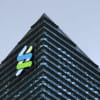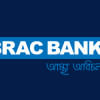SS Steel sees profit shrivel as it expands footprint

SS Steel Ltd has registered higher turnover thanks to increased sales ever since the steelmaker started acquiring several companies in 2020, but its overall profit has dropped.
Sales of SS Steel rose 41 percent year-on-year to Tk 1,642 crore during the July-March period of the current fiscal year. Still though, the company notched a profit of just Tk 3.9 crore, indicating that its net profit margin was 0.23 percent, the lowest among all listed steelmakers in operation.
The profit margin of S Alam Cold Rolled Steels stood at 0.64 percent in July-March while that of GPH Ispat was 1.45 percent, BSRM Steels was 4.37 percent, and BSRM Ltd was 5.20 percent.
A company's profit margin gauges the percentage of its revenue that remains as profit after subtracting all expenses, such as raw material and transport costs.
As per company disclosures, SS Steel has acquired Saleh Steel Industries, Al-Falah Steel, Super Steel, and Peninsula Steel Mills over the past five years, investing large sums to revive production at the units.
As a result, sales of SS Steel rose but its profitability has been falling in line with other financial indicators mainly due to higher net finance and raw material costs.
The net finance costs, or interest due on loans, amounted to 5 percent of turnover in FY2020-21 while it rose to 8 percent in FY23.
Therefore, investors and stock market analysts have started questioning the logic behind SS Steel taking over the companies since it remains unclear who actually benefited from the move as general investors did not.
During its trading debut in 2019, SS Steel had the highest net profit margin among all listed steelmakers. This helped the company raise Tk 25 crore through its initial public offering. Currently, it has the lowest profit margin in the steel industry, according to an official of an asset management company.
Citing how there should be a logical explanation for SS Steel's shrivelled profits, the official suggested the stock market regulator should investigate whether its profit margin reduced for business reasons.
The asset manager also said that some companies show better performances before getting listed in a bid to attract investments. But following its trading debut, the company's performance weakens. Therefore, the regulator should also investigate if SS Steel is this type of case, he said.
The profit margin of SS Steel was 12.51 percent in FY19 while it was 12 percent and 14 percent in FY20 and FY21, respectively.
The profit margin of GPH Ispat was 6 percent, 3 percent and 5 percent, respectively, over the same three years. Meanwhile, the profit margins of BSRM Ltd and BSRM Steels ranged from 1.92 percent to 8 percent during the three-year period.
The official added that the Bangladesh Securities and Exchange Commission (BSEC) should look into the reasons behind SS Steel's present situation as it could be linked with the interests of investors.
In line with the reduced profit margin, the dividend payments also decreased over the years: SS Steel declared a 15 percent stock dividend for FY19 while it was 10 percent the following years to FY22. It announced a 2 percent cash dividend for the last financial year.
In 2020, the listed steelmaker bought Saleh Steel Industries for Tk 25 crore and invested another Tk 134 crore to ensure the company's smooth operation.
SS Steel acquired Al-Falah Steel in 2022 and has so far invested around Tk 184.14 crore in the company.
A year later, the company took over the fixed assets of both Super Steel Ltd and Peninsula Steel Mills by investing around Tk 130 crore as a part of its business expansion.
The fund was given from the company's retained earnings and by taking bank loans, as per its disclosures on the Dhaka Stock Exchange (DSE). As a result, the company's debt to equity ratio increased.
In FY19, the debt to equity was 0.48 while it rose to 1.24 in FY22, according to the annual reports of SS Steel.
The ratio indicates how much debt a company is using to finance its assets relative to the value of its shareholders' equity. A high debt to equity ratio generally means the company is aggressive in financing its growth with loans.
The manufacturer's finance costs are also rising.
The net finance cost was Tk 26 crore in FY20 while it soared to Tk 121 crore in FY23. In the first nine months of the current fiscal year, the net finance cost was over Tk 100 crore.
Last month, SS Steel got approval from the BSEC to issue bonds worth Tk 500 crore in order to repay bank loans, and expand and modernise the existing projects. But higher costs ultimately hit the bottom line.
Before acquiring these companies, SS Steel posted a profit of Tk 43 crore in FY20. It rose to Tk 70 crore the following year but started falling after that.
SS Steel saw profits of Tk 61 crore and Tk 1.76 crore in FY22 and FY23, respectively.
In its financial reports, the company blamed higher raw material and utility costs alongside the depreciation of the local currency for its reduced profit in FY23.
On April 28, The Daily Star sent an email to the company secretary of SS Steel seeking comments about its performance. However, he did not respond as of yesterday.
BSEC Spokesperson Mohammad Rezaul Karim said SS Steel did not need the regulator's approval to go for the acquisitions and had submitted all the required paperwork.
"We are examining the papers and prepared some queries on some issues. If the company can't give proper answers, we will take action."

 For all latest news, follow The Daily Star's Google News channel.
For all latest news, follow The Daily Star's Google News channel. 








Comments